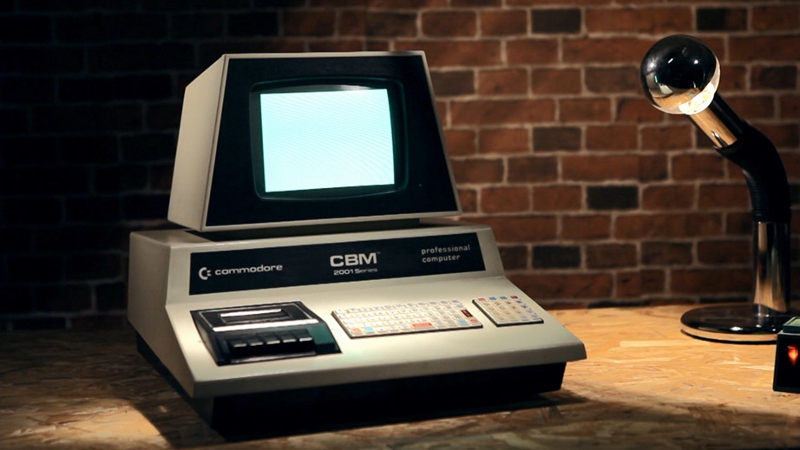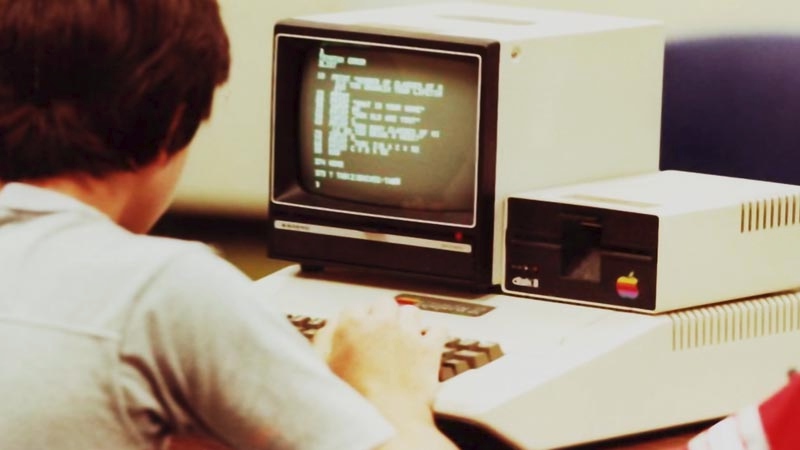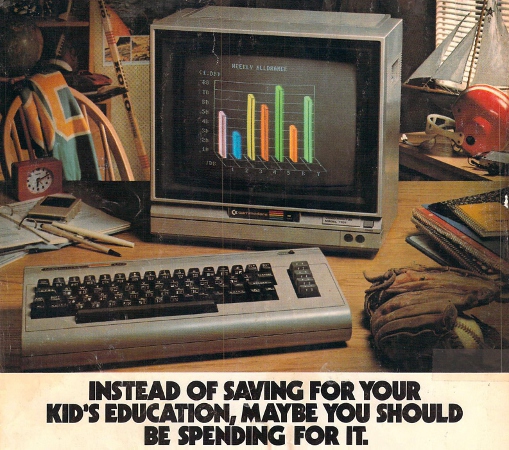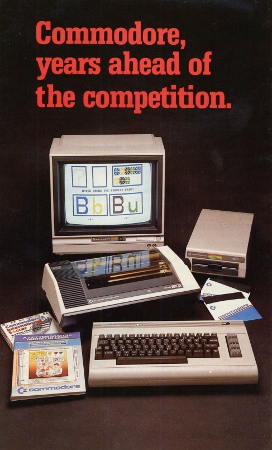| Reviews & Columns |
|
Reviews DVD TV on DVD Blu-ray 4K UHD International DVDs In Theaters Reviews by Studio Video Games Features Collector Series DVDs Easter Egg Database Interviews DVD Talk Radio Feature Articles Columns Anime Talk DVD Savant Horror DVDs The M.O.D. Squad Art House HD Talk Silent DVD
|
DVD Talk Forum |
|
|
| Resources |
|
DVD Price Search Customer Service #'s RCE Info Links |
|
Columns
|
|
|
8-Bit Generation: The Commodore Wars
 Produced between 2010 and 2012, 8-Bit Generation's The Commodore Wars (2016) promises to deliver an inside look at the home computer explosion of the 1970s and early 1980s: one populated by the likes of Apple, Atari, Texas Instruments, and Tandy, but eventually dominated by Commodore. Easily the biggest on-screen presence is company founder Jack Tramiel (who died in 2012, a few months before production wrapped) who, among others, attempts to offer their role in a surprisingly cutthroat and incredibly important era in technological growth. Aside from Tramiel, we also hear from Jack's son Leonard, MOS Tech engineer Chuck Peddle, Commodore engineer Al Charpentier, Commodore marketing manager Michael Tomczyk, game programmers Dave Rolfe and Richard Garriot, Llamasoft founder Jeff Minter, and Andy Finkel (head of Commodore's software engineering), as well as Apple co-founder Steve Wozniak, Sinclair Research director Nigel Searle, Sinclair Research computer scientist John Grant, Atari founder Nolan Bushnell, Atari engineer (and Pong designer!) Al Alcorn, Atari engineer Joe Decuir, "The Father of Video Games" Ralph Baer, Commodore engineer Bil Herd (who also narrates), and more. In all, a whopping 64 participants were interviewed (full list here), although not all of them appear on this disc. More on that later. Yet even with such an impressive roster of names and an (almost) bulletproof premise, Commodore Wars shows its seams early and often. This is a rather sloppily thrown-together production, especially considering the interviews were shot during a 24-month period that ended almost five full years ago. Pacing is all over the place---usually, it's rushed---and the problem is exacerbated by more technical information than the average viewer will be able to process (even the on-screen ID tags, presented in a pleasingly retro format, disappear much too quickly). The editing is extremely sloppy as well, with many random and overly gratuitous cuts that make Commodore Wars resemble more of an action film than a series of talking-head interviews. Music follows suit, with a wildly varying tone that alternates between country, retro electronic, and whatever else was lying around all the time. And for some reason, any time a computer chip is viewed in close-up, it's accompanied by a droning low frequency effect your pets will hate. While there's an obvious appeal present in Commodore Wars' surface-level subject matter and cutthroat moments of capitalism, it's a documentary in serious need of spit and polish. The script that narrator Bil Herd is painfully subjective and informal at times, which stands in contrast with the film's less-than-accessible interviews that will hold all but the most computer literate at arm's length. Also adding to the confusion is that this DVD from Kino Lorber represents only one piece of the puzzle: there's no Blu-ray option and only the bare minimum of bonus features, whereas the film's official website advertises a downloadable HD version and a number of exclusive extras to boot. Unlike its subject matter, Commodore Wars doesn't seem to place much value in an aging physical medium.


 Presented in a mixed aspect ratio (mostly 1.78:1, with some older clips in 1.33:1), Commodore Wars looks reasonably good for a documentary of this type. Newer interview clips are largely well-lit with pleasing image detail and color saturation, no visible defects, and even a bit of texture on some occasions. Not surprisingly, older stills and clips can vary in quality a bit: softness is a chief offender here, as well as trace amounts of compression artifacts, jagged edges, and even a few analog tracking lines. But these defects are perfectly acceptable and almost charming given the source material and subject matter, so fans won't find a great deal to complain about. The only two objective issues here are (1) the occasional cropping and/or stretching or several vintage clips to fill the 16x9 frame, and (2) the lack of a Blu-ray option. NOTE: The film's official website includes a downloadable HD version with lots of material that don't appear on this DVD, so take that into account before considering a purchase.
The Dolby Digital 2.0 Stereo mix offers clean dialogue and music cues that rarely fight for attention, while most of the older clips sounds perfectly fine considering the age and quality of the source material. Optional English subtitles are included, which is great, although they often overlap graphics identifying the person(s) being interviewed.
 . . 
 A lot of creativity could've spiced up the presentation a bit, but at least the plain-wrap interface is easy to use. This one-disc package is housed in a standard keepcase with no inserts and only the bare minimum of cover artwork.
 Again, a disappointing effort here, especially considering the wealth of bonus content offered with two different digital versions available on the film's official website. What we do get here (a 14-minute TEDx Talk Segment with Leonard Tramiel that's been easily accessible via TEDx's YouTube channel for several months, plus the film's Theatrical Trailer) at least represents some effort, but it's a wasted opportunity given what else is out there.
 The 1970s and 1980s were important eras in the growth and eventual explosion of home computer usage, and there's no doubt that folks my age (and older) have vivid memories of the now-ancient hardware featured on Commodore Wars. Though obviously dominated by the title company (Tandy, Apple, Atari, and Texas Instruments take a distant second in screen time), you don't have to be a Commodore fanboy to be intrigued by its story. Yet this isn't even close to a perfect or even fully-polished documentary: the pacing is very rushed, it's far too technical to draw in casual fans, and the editing is extremely sloppy at times. In fact, had it not been for the fortunate timing of this project (feature subject Jack Tramiel died in 2012, near the end of production), Commodore Wars might be considered a total loss. To make matters worse, Kino's DVD doesn't offer much support: there's no Blu-ray option, and many extras are only available as digital downloads on the film's official website (as well as an HD option). Skip It.
 |
|
| Popular Reviews |
| Sponsored Links |
|
|
| Sponsored Links |
|
|
| Release List | Reviews | Shop | Newsletter | Forum | DVD Giveaways | Blu-Ray | Advertise |
|
Copyright 2024 DVDTalk.com All Rights Reserved. Legal Info, Privacy Policy, Terms of Use,
Manage Preferences,
Your Privacy Choices | |||||||














